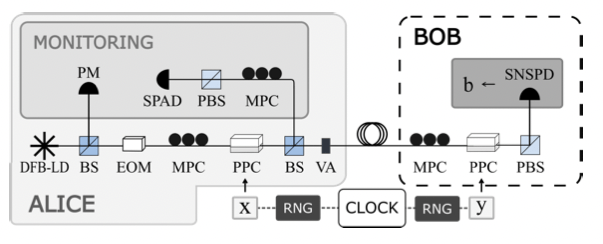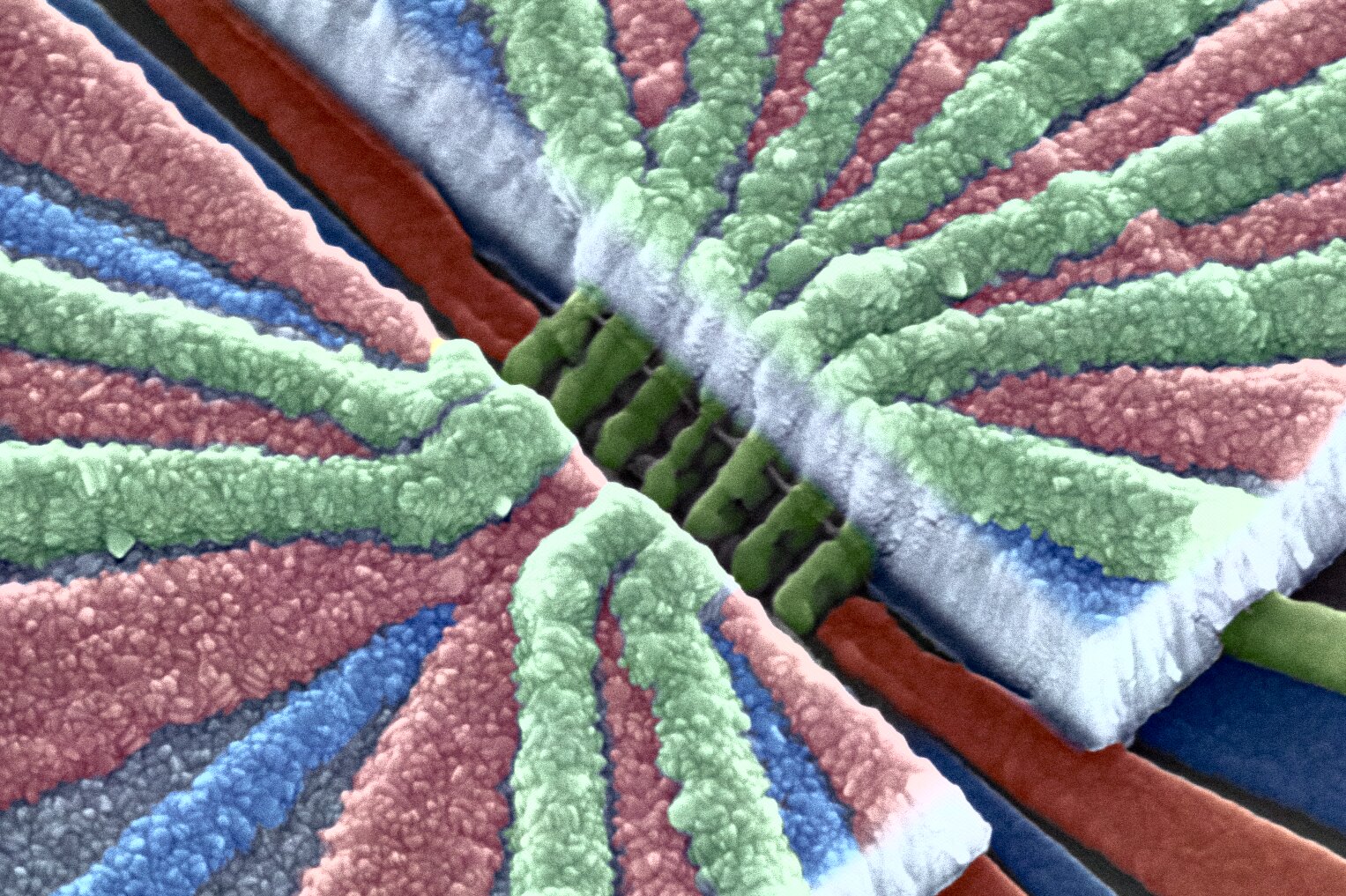Researchers at University of Geneva (UNIGE) and CEA have presented new protocols for Quantum Key Distribution (QKD) in a prepare-and-measure setup with an asymmetric level of trust.
While the device of the sender (Alice) is partially characterized, the receiver’s (Bob’s) device is treated as a black-box. The security of the protocols is based on the assumption that Alice’s prepared states have limited overlaps, but no explicit bound on the Hilbert space dimension is required. The protocols are immune to attacks on the receiver’s device, such as blinding attacks.
The users can hence establish a secret key while continuously monitoring the correct functioning of their devices through observed statistics.
The team reported a proof-of-principle demonstration, involving mostly off-the-shelf equipment, as well as a high-efficiency superconducting nanowire detector. A positive key rate is demonstrated over a 4.8 km low-loss optical fiber with finite-key analysis.


